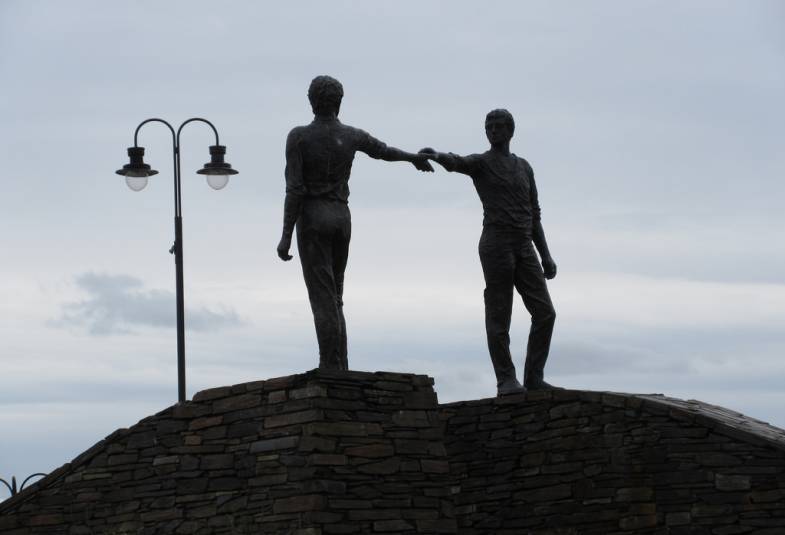11/12/2018
Archbishop Justin Welby offers his lesson for 2019 in the latest issue of Prospect magazine.

We need to learn to forgive. Especially we need to learn to forgive those who have the temerity, even the abusive intransigence, to disagree with us on something where we think we are right. That appears today to be a mortal sin.
Disagreement should be a matter of debate, of rational examination of different views, even of passionate and robust argument. But it should not be a cause of hatred, the incitement of violence, and the denigration of the humanity of the other person.
Yet, that is where we seem to have got to. Forgiveness is the process by which we recognise guilt, and yet release it. A few years ago, I heard a debate on the radio about whether it was even necessary to consider forgiveness as a virtue. It was argued that we should simply let things pass us by. That the stoic approach—which keeps us at a certain emotional distance from the abuses, sufferings and challenges of the world—is the approach that we should take instead. Forgiveness implies emotion, anger, and even the concept of sin. (Please excuse me mentioning sin, but I am the Archbishop of Canterbury.)
Forgiveness accepts that harm has been done and that harm cannot be ignored; for ignoring it opens the door to impunity and injustice. I spend a great deal of my time in places where the absence of forgiveness leads to an ever-more destructive cycle of retribution, hatred and vendetta. Yet I also see, in some of these places, the capacity of those who have suffered more than I can begin to imagine, to forgive.
Forgiveness breaks the cycle of violence, and the descent of our natures into that pit of self-justification and contempt for others that in the end makes us regard them as less than human. When that happens, it permits us to take any action, or make any statement, that fulfils the rage within us.
Forgiveness sets us free and sets the offender free. It cuts the chains that impede the move to reconciliation, and with the cutting of the chains there is the start of a hope of the common good emerging, of new relationships formed, and of a future in which particular angers have become history, not reality.
Our novels, our histories and our current experiences are full of the consequences of unforgiven wrong. To forgive is not to pretend that nothing has happened: it is the opposite. It accepts the full weight of wrong, looks at it, considers it, weighs it and then dissolves it through grace and love.
Obviously, in our culture this has deeply Christian roots. The offer of forgiveness is the central act of the life and death of Jesus Christ. More than that, He called on His followers to love their enemies. Love in that context, and in His time, did not mean warm cuddly feelings about other people, but a settled intention to see the other blessed, and at its best to do so without hope of return.
So why do I nominate the power of forgiveness as a particular lesson for 2019? One very contemporary reason attaches to social media. Of its many goods and evils, perhaps the most dangerous is to do harm without a sense of the other. We can hate at a distance, and yet do so intimately and powerfully, destroying the other’s self-image, their confidence that they have value. Because of the intimacy of a tweet or blog post, the hatred cuts into us as woundingly as if the author was present. But because of the distance, we feel no need to seek forgiveness or reconciliation.
More generally, a new emphasis on forgiveness would begin to open the way for our country to move forward, indeed for Europe and the world to move forward, without creating more impunity where victims are forgotten, and crimes overlooked. We need the possibility of crime being acknowledged, victims comforted, and human beings freed for a better future.
In sum, I would like to see the revival of a sense of needing and of offering forgiveness, in order to liberate those involved in harm, to break cycles of cruelty, to re-establish the intimacy of honest difference.